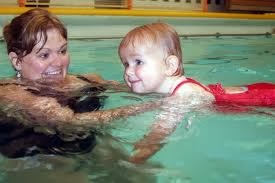To take on the name of Jesus and follow him means far more than spouting a mere handful of words and comfortably considering oneself "saved" for all eternity. Jesus calls us to take up his yoke, to serve others, to pursue Righteousness through righteous acts, and to store up treasure in Heaven rather than on earth.
In short, to follow Jesus is to take up a challenge - to take up a call to serve.
Jesus says, "Whoever wants to be my disciple must deny themselves and take up their cross and follow me." (Mark 8:34.) He calls on us to follow his example, and to "do just as I have done to you (John 13:15) saying clearly that he "came not to be served but to serve.” (Mark 10:45.)
We are to love God with 100% of our heart, mind, soul and strength and ALSO to love our neighbor just as we are accustomed to loving ourselves (Mark 12:30-31.)
And just who is our neighbor? Jesus was asked this and gave a clear answer in the Parable of the Good Samaritan, in which a man was robbed and left for dead on the side of the road, and many walked right by him. But one man stopped and brought him to a local inn and paid for his shelter and his needs. That man, he said, was the one who was a good "neighbor" to this stranger. And we are told by Jesus, "You go, and do the same" (Luke 10:37.)
This is a call to do good - a call to serve Others, just as Jesus served others. We are able to serve just as Jesus served, we are commanded to do so, and Jesus confirms this with his words (John 14:23-24) which will never pass away (Matt. 24:35.) And as John wrote, "the one who does what is right is righteous, just as [Jesus] is righteous" (1 John 3:7.)
We are to be the hands and words and comforting arms of God's Kingdom here on Earth. We are called by Jesus to be a People of God, to serve Others in the name of God's Anointed servant, Jesus. And we are called to forgive others, if we expect to be forgiven by God (Mark 6:14-15.)
To follow Jesus and pursue his perfect example means we must serve Others with our Works, both alone and also as a community of Faith. For whenever two or three gather in his name, the spirit of Jesus is amongst us (Matt. 18:30.)
Jesus preached that we are to repent of our sins and live our lives completely dedicated to serving others, all the while relying fully on God's forgiveness and mercy. Only our repentance and Righteous acts can save us, not mere words or faith without repentance and Good Works, upon which we shall be judged, and only the Righteous shall be with God eternally (Matt. 25:46.)
By living according to the will of God, as shown in the life, teachings and death of God's chosen spokesman, Jesus, we grow into the likeness of God, seeking after God's perfection and growing more spiritually mature and perfect each day.



